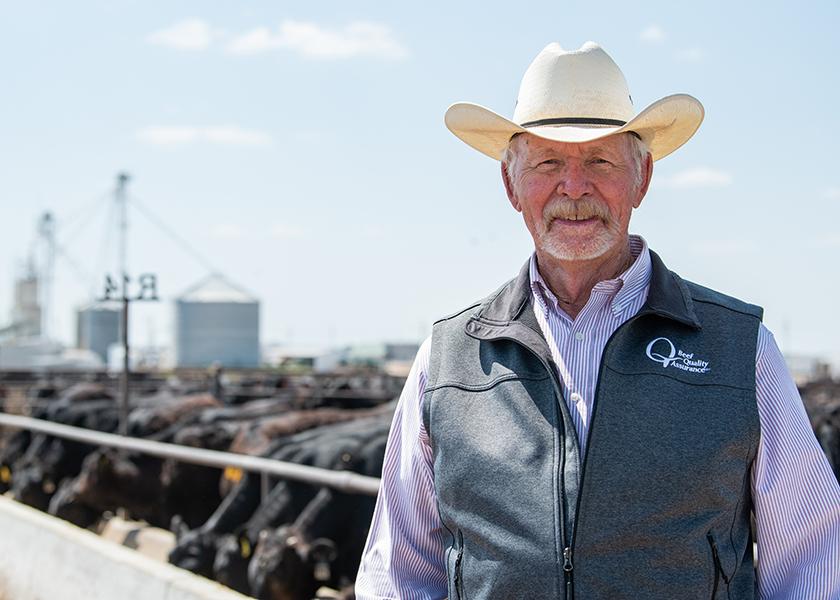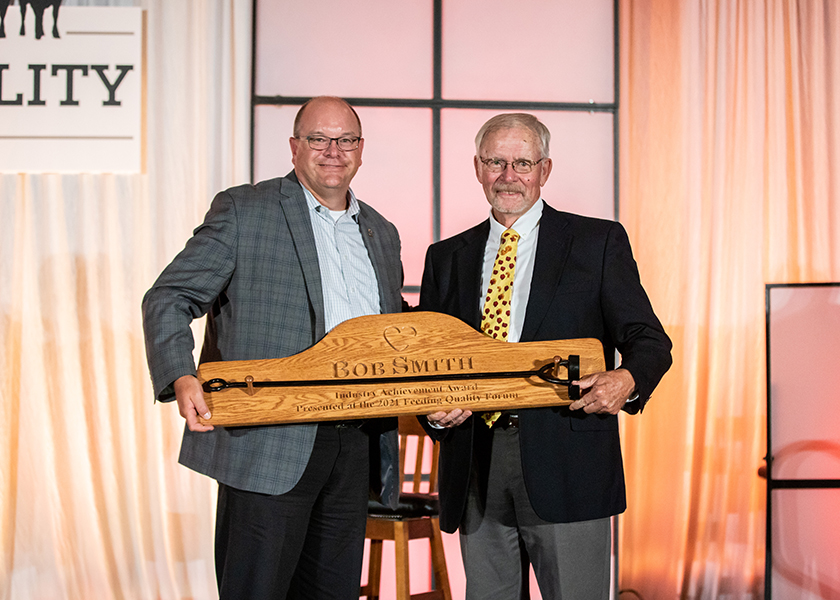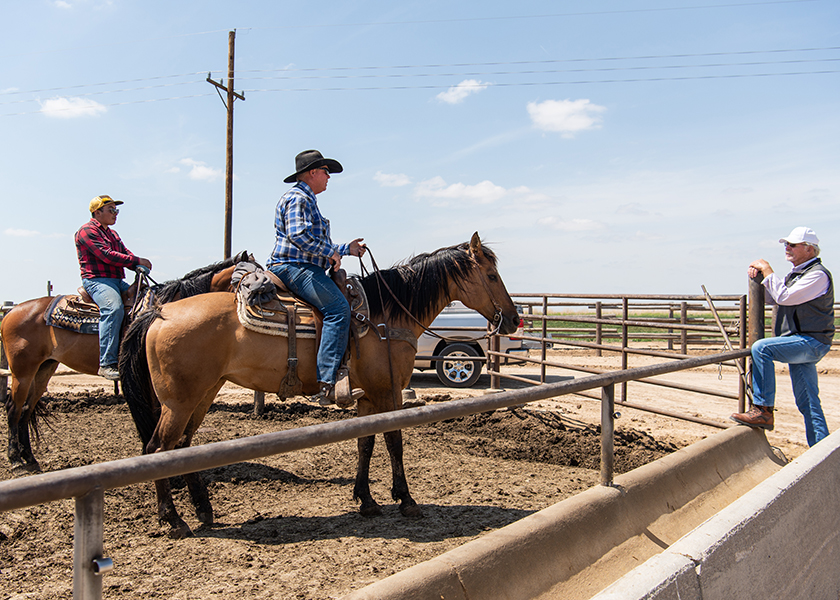Smith receives Industry Achievement Award at Feeding Quality Forum

The hands of a veterinarian hold the life cycle of an animal in their care. The mind, however, directs the hands.
Anyone who’s met Dr. Bob Smith knows the way he thinks is something else.
"There was one time he told me I needed to look at the 1993, page 4, 2nd edition of the Bovine Practitioner for a problem I had," says Miles Theurer, the research director for Veterinary Research and Consulting Services (VRCS) and Hy-Plains Feedyard near Montezuma, Kansas. "I was like, ‘yeah, okay.’ But I actually pulled it up and he nailed it spot on."
What Theurer – and anyone who’s worked with Smith – has come to understand is, the vet knows his stuff.
It’s come from more than 30 years in the industry caring for its people and cattle.

Smith joins the rankings of people like Larry Corah, Jerry Bohn, John Matsushima and Topper Thorpe with the 2021 Industry Achievement Award presented at Feeding Quality Forum, August 24 in Fort Collins, Colo.
Smith grew up in Pittsburg, Kansas – five miles from Missouri and 20 miles from Oklahoma. His dad worked off the farm but the Smith family ran a few beef cows, milked a few dairy cows and had some horses.
He joined the Beef Quality Assurance (BQA) research efforts 30 years ago and hasn’t looked back. When he got involved, injection site lesions were known to diminish beef quality. He helped create new best practices, moving injections from the top butt to the neck. He developed BQA trainings about the procedure.
"We went from about 24% of fed cattle carcasses having injection site lesions down to virtually none," he says.
In the early 2000s, he became chair of the BQA group studying cattle welfare. The group learned stress suppresses the cattle immune system, making cattle more susceptible to disease and other problems. They developed a guide on cattle handling and started stockmanship schools around the country.
"We’ve improved the quality of our product a lot, but we’re not sitting on our laurels," Smith says. "We’re looking for new opportunities and not forgetting what we’ve accomplished in the past."
Outside of his work with BQA, he’s spent nearly 25 years in post-education positions and nearly the equivalent in the private sector. Currently, he’s a vet with VRCS, which serves around 60 feedyards.
He’s accumulated much knowledge over his nearly four-decade career and shares as much as possible in the personal, one-on-one encounters he cherishes.
He’ll see that yard personnel follow protocols correctly. When driving the yard, he carefully observes pen riders, handing them 3x5 cards with detailed notes.
Tom Jones, manager of Hy-Plains Feedyard, friend and client of the veterinarian for more than 30 years, says Smith lives and dies by education, stockmanship and protocols.
"Doc Bob likes to use stockmanship as his number one antibacterial," Jones says. "But his priority when he visits our yard is education. He spends more time with our doctors and cowboy crews than he does in the office with me."
Smith’s work ethic is legendary, according to Jones. To his knowledge, few people have necropsied more cattle or have as much experience. "He loves to find out what went wrong," he says.
"I think partly why the businesses that I’ve been around have done okay is because of the guidance of Doc Bob," Jones adds.
Every year Smith helps host an antimicrobial resistance meeting at the Hy-Plains Education and Research Center. Attendees represent nearly a third of the U.S. fed cattle production.
He thrives on providing solutions to big challenges like respiratory diseases or growth performance.

"It’s where the producer gets the most return," Smith explains.
With years of experience, his white hair, and suffering chronic back pain, clients may wonder when he’ll stop coming by.
"If my golf game was better, I might’ve quit by now," Smith jokes. "But I’m a terrible golfer, and I still enjoy getting up and going to work."
He hopes to be remembered as a "pretty good veterinarian;" someone who loved his profession, his family, his God and gave it all he had.
"There are so many people that are deserving of this award," Smith says. "Really it’s a shared award. No matter what you’ve accomplished, someone has helped you. But I’m deeply grateful."







